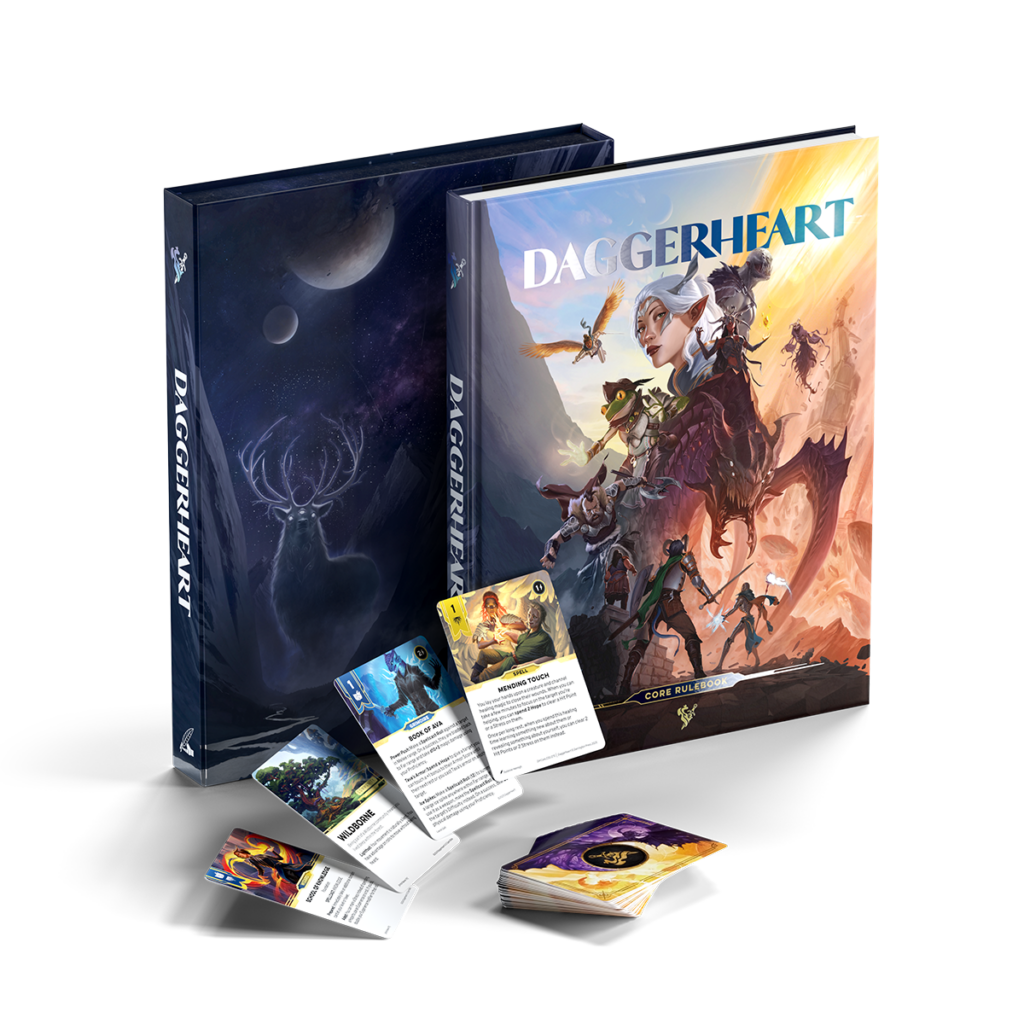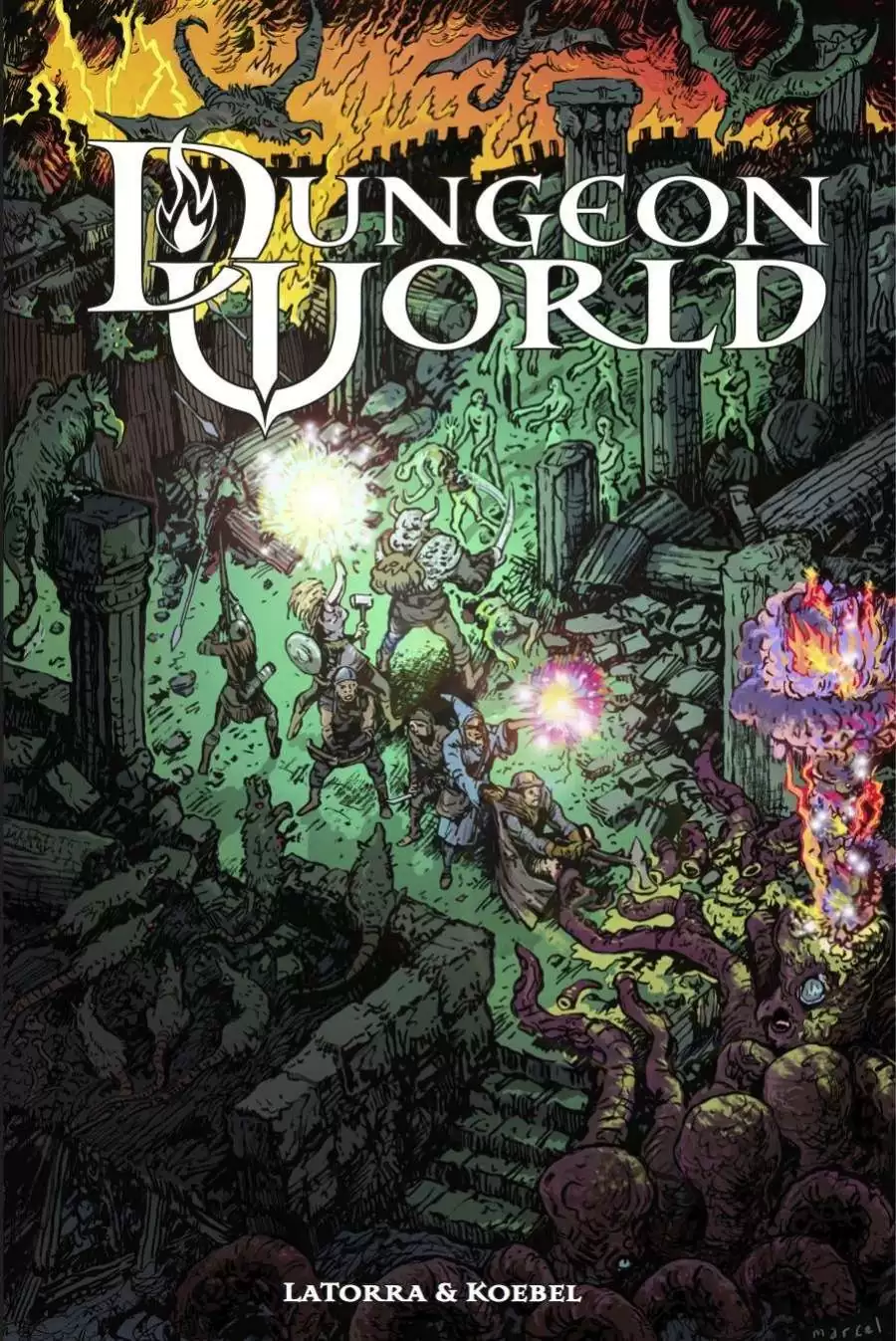Daggerheart Fantasy; Dark Fantasy; Dark; Narrative-Driven; Character Customization; Tactical Combat; Collaborative Worldbuilding
Daggerheart is a fantasy tabletop roleplaying game by Darrington Press, designed for long-term campaign play with a focus on shared storytelling and character progression. It utilizes a unique Hope and Fear dice mechanic, along with a card-based system for character development. While offering deep customization and player agency, some critiques point to a potential imbalance in GM empowerment and a lack of specificity in certain rules.
Theme and Setting
Daggerheart is envisioned as a fantasy RPG centered around brave heroics in vibrant worlds collaboratively built by the gaming group. Long-term campaign play is a core design principle, with player choices directly shaping the world and overarching narrative. The setting is designed to encourage shared storytelling, where the game master asks questions of the players and builds the world, maps, adventures, and stories around their ideas and character backgrounds.
Core Mechanics and Rules
The core mechanic revolves around the Hope and Fear dice system, using two 12-sided dice. Players roll both dice to determine the outcome of actions. A higher Hope die results in a beneficial outcome and generates Hope points, which can be used to power future abilities. A higher Fear die grants Fear points to the game master, which can be used to complicate the narrative and challenge the players. This duality is central to the game's character-focused narratives. Character creation leverages a card system, with Ancestry and Community cards defining a character's background, while Subclass and Domain cards provide abilities and customization options as the character progresses. Combat is intended to be seamless with exploration, but some criticize the lack of defined initiative or turn structure, potentially leading to imbalances at the table.
What Makes It Unique
Daggerheart's uniqueness stems from its Hope and Fear mechanic, creating a dynamic tension in every roll. The card-based character progression system offers tangible and satisfying growth. The game emphasizes collaborative worldbuilding, giving players significant agency in shaping the setting. However, some reviewers argue that the mechanics skew heavily toward ensuring players almost never leave a roll with nothing, and that the GM does not have as many opportunities to challenge the players due to slower Fear accumulation.
Target Audience and Player Experience
Daggerheart seems targeted towards players who enjoy collaborative storytelling, character-driven narratives, and long-term campaigns. The game's design promotes player agency and shared worldbuilding, potentially appealing to those seeking a more involved role in shaping the game's universe. Resources are available for Game Masters of all experience levels. However, some argue the game might not be suitable for groups that prefer highly structured gameplay or those with players who struggle to participate actively. The lack of specificity in certain rules could require the GM to provide significant guidance.



